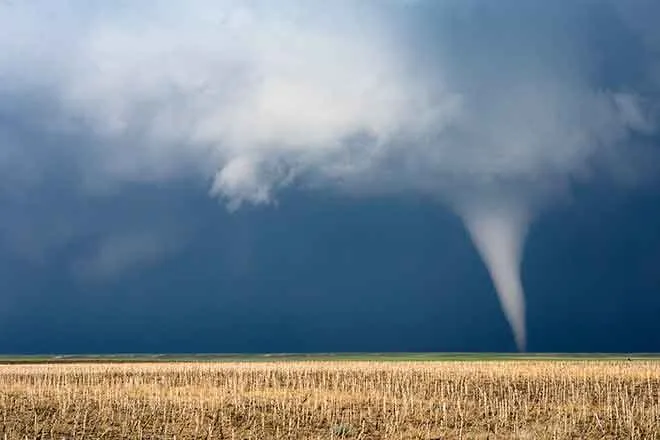
Daily Audio Newscast Afternoon Update - April 21, 2025
© INDU BACHKHETI - iStock-1336427297
News from around the nation.
Pope Francis, first Latin American pontiff who ministered with a charming, humble style, dies at 88; MS literacy gains offer blueprint for education reform, experts say; Low wages mean multiple jobs for MA higher-ed faculty, staff; Las Vegas 'trashion' show gives used textiles new purpose.
Transcript
The Public News Service Monday afternoon update, I'm Mike Clifford.
First from the Associated Press, Pope Francis, history's first Latin American pontiff, who charmed the world with his humble style and concern for the poor, but alienated conservatives with critiques of capitalism and climate change, died Monday.
He was 88 years old.
Bells tolled in churches from his native Argentina to the Philippines and across Rome as news spread around the world.
Next to Mississippi, where a decade-long focus on early literacy has transformed the state.
According to the Mississippi Department of Education, the state's fourth graders are making the largest gains on reading assessments.
They once ranked last on those tests.
Media reports have dubbed the transformation the Mississippi Miracle.
Harry Petrinos, endowed chair of education policy at the University of Arkansas, says the turnaround is anything but luck.
Mississippi was 49th in the nation in fourth grade reading.
In just a decade, they went to 21st place in reading.
And these gains continue to impress.
The country was hit with the school closures during COVID-19.
But since then, Mississippi has not lost anything in terms of learning outcomes, which is rare in the country and the world.
The state's progress stems from its 2013 Literacy-Based Promotion Act, which emphasized speech-based instruction, early intervention, and retention for students not meeting reading benchmarks.
I'm Tramell Gomes.
And a survey of faculty and staff of Massachusetts public colleges and universities reveals low wages are forcing many to take on additional jobs.
The Massachusetts Teachers Association found about 30 percent of campus staff work elsewhere, while about half of faculty members also work as adjunct instructors.
Professor of Nutrition and Health Studies at Framingham State University, Jerusha Nelson Peterman, says the trend will ultimately impact student success.
You are there for the students when they need you, but if you're so busy trying to just survive, that means you can't be there.
Union leaders say it has become increasingly difficult to recruit and retain the workers needed to provide a quality education.
On average, UMass faculty earn about $31,000 less than their counterparts at private independent research universities.
I'm Catherine Carley.
And designers and stylists will showcase their upcycled garments as models hit the runway for what's being dubbed as the Trash and Show at the Waste Expo in Las Vegas next month.
It's estimated the average American household spends around $1,500 a year on clothing.
Whether these items wear thin or go out of style, Textiles Professor Sonia Salmon at North Carolina State University says only a small fraction of them are recycled.
Textile fibers are really amazing materials.
We wear them, they're on our bodies, they feel good, they make us happy.
They are also a resource.
They have chemistry in them, they have materials in them that deserve to be recycled and reused.
She says the industry is realizing more must be done to reuse these materials.
This is public news service.
Dozens of mine safety field offices in Kentucky and across the nation were closed under a proposal by the Federal Department of Government Efficiency, or DOGE.
Offices in Barberville and Harlan are on a list of seven in Kentucky slated for closure.
Brendan Muckey and Bates, a policy and advocacy associate with the Law Center, says closing those offices could turn a 30 minute drive to inspect a rural coal mine into a three or four hour round trip.
With the proposed consolidation in Kentucky, some of these offices that would be left would essentially make it near impossible for an MSHA field inspector to conduct the mandatory four times a year underground mine safety inspection.
News outlets first reported last month that DOGE had closed the leases of dozens of mine safety and health administration field offices across the country for cancellation.
Nadia Ramlagan reporting.
This story produced with original reporting from Liam Nymire for Kentucky Lantern.
At North Dakota's legislative session scheduled to end in May, the issue of using public funds for school choice remains unresolved.
Republican lawmakers are pushing competing bills that would create education savings accounts, giving North Dakota families money to enroll their kids in private schools.
One cleared the state senate last week after winning house approval, and now both chambers have to sort out the differences.
A separate measure has advanced, but not quite as far.
Superintendent Rick Deagle of the Kitter County School District doesn't want either one becoming law, noting small public schools like his need the money instead.
Our school used to offer family consumer science.
However, because of the cost, I had to cut that program.
He and other bill opponents, including some Republicans, argue private schools are hard to come by in rural counties and don't have to accept everyone who applies.
But supporters say parents should have more choice, especially if they feel their child needs a more personalized learning environment.
I'm Mike Moen.
Finally, we head to California, where the Make Polluters Pay Superfund bill goes before the State Assembly Natural Resources Committee today.
The bill would direct the California Environmental Protection Agency to study how much climate change has cost the state between 1990 and 2024, and assess a one-time fee on oil and gas companies that have emitted more than 1 billion metric tons of emissions.
Maya Golden Krasner is with the Center for Biological Diversity in Los Angeles.
These are companies that make billions of dollars in profits per day.
This bill would take some of the burden off of taxpayers and put it onto the people who caused the crisis.
Right now, taxpayers end up footing much of the bill to clean up after natural disasters like megafires and floods.
I'm Suzanne Potter.
This is Mike Clifford.
Thank you for starting your week with Public News Service.
Member and listener supported.
Hear us on interesting radio stations, your favorite podcast platform.
Find our content and our trust indicators at publicnewsservice.org.
















